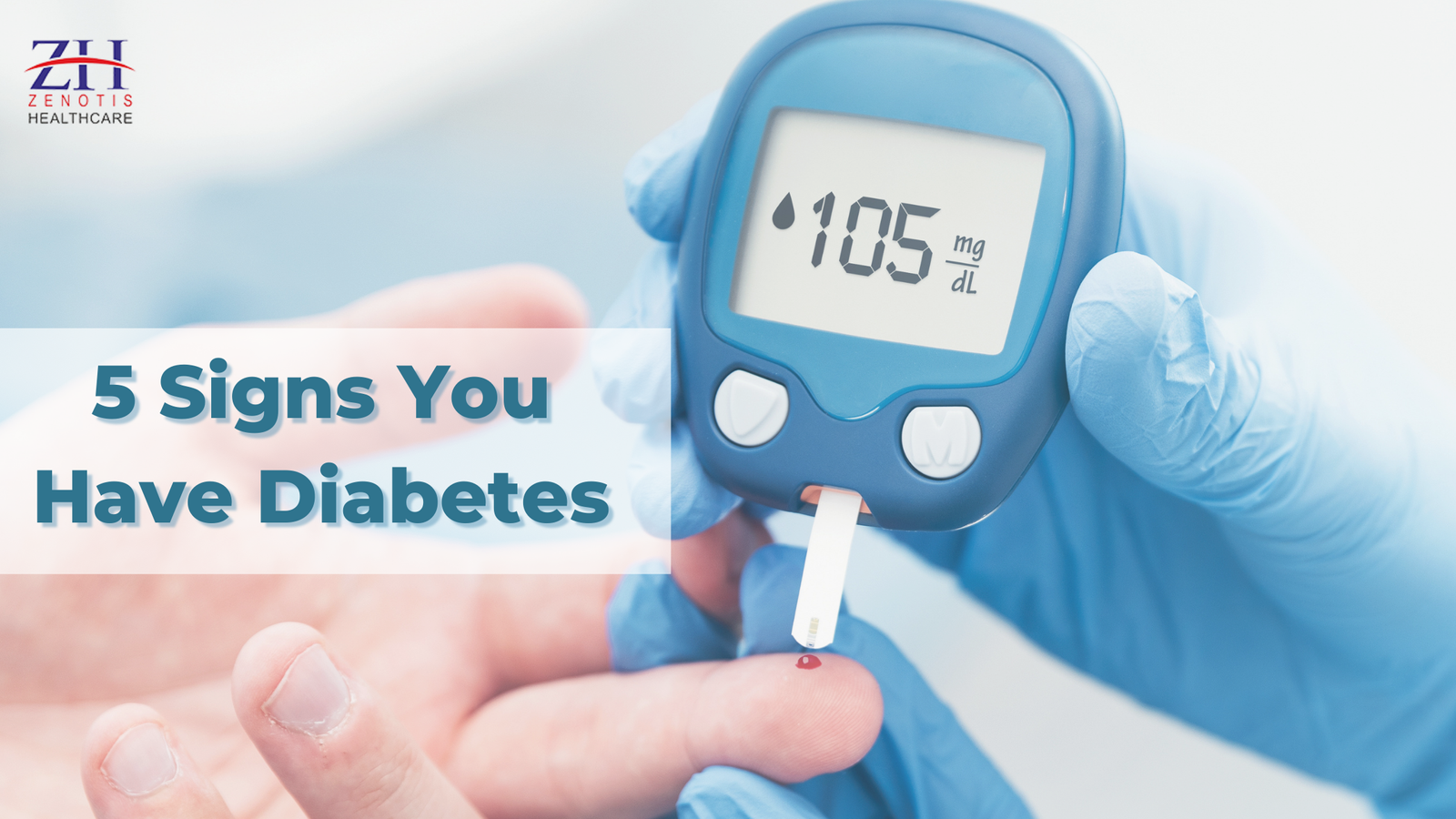5 Signs You Have Diabetes
Diabetes is a chronic health condition that affects how your body processes sugar (glucose). It occurs when your body either doesn’t produce enough insulin or can’t use it properly, leading to high blood sugar levels. If left unmanaged, diabetes can cause serious health complications, including heart disease, kidney problems, and nerve damage. That’s why it’s crucial to recognize the early signs and seek timely medical advice.
5 Signs You Have Diabetes
- Frequent Urination (Polyuria)
If you find yourself rushing to the bathroom more often, especially at night, it could be a sign of diabetes. High blood sugar levels force your kidneys to work harder to remove excess glucose from the body, resulting in increased urination. This can also lead to dehydration, making you feel thirsty all the time.
- Excessive Thirst (Polydipsia)
Feeling constantly thirsty, no matter how much water you drink? When your body loses more fluids due to frequent urination, it triggers excessive thirst. This is your body’s way of trying to replenish lost fluids. However, if the thirst feels unquenchable, it’s worth checking your blood sugar levels.
- Unexplained Weight Loss
Losing weight without trying? It might not be a good thing. In diabetes, your body struggles to use glucose for energy, so it starts breaking down fat and muscle instead. This can lead to sudden and unexplained weight loss, even if you’re eating normally.
- Constant Fatigue
Do you often feel tired or sluggish, even after a full night’s sleep? High blood sugar levels can interfere with your body’s ability to convert food into energy, leaving you feeling drained. If persistent fatigue is affecting your daily activities, diabetes could be the culprit.
- Slow Healing Wounds
If small cuts, bruises, or infections take longer to heal than usual, it might be due to diabetes. High blood sugar levels can affect circulation and damage blood vessels, slowing down the body’s healing process. This can make you more susceptible to infections and skin problems.
Diabetic Medicines: Managing Your Blood Sugar
If you’re diagnosed with diabetes, managing your blood sugar is key to preventing complications. Treatment usually involves lifestyle changes, a balanced diet, and medication. Some commonly prescribed diabetes medicines include:
- Metformin – Helps lower blood sugar levels by improving insulin sensitivity.
- Insulin Therapy – Essential for people with type 1 diabetes and some with type 2.
- Sulfonylureas – Stimulate insulin production from the pancreas.
- DPP-4 Inhibitors – Help lower blood sugar levels without causing drastic drops.
While medication plays a crucial role, maintaining a healthy lifestyle with regular exercise and a proper diet can significantly improve your diabetes management.
Recognizing the signs of diabetes early can help you take control of your health before complications arise. If you experience any of these symptoms, consult a doctor for a proper diagnosis and treatment plan. With the right approach, diabetes can be managed effectively, allowing you to lead a healthy and fulfilling life.

